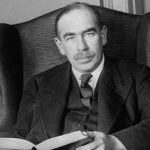Originally named Helvetia, this is a landlocked democratic European republic, with boundaries to the east with Liechtenstein and Austria, to the south with Italy; the west by France and finally to the north with Germany. The official name now is the Swiss Federation.
In the tenth century Switzerland was a small part of the Holy Roman Empire (q.v.) but the Swiss Confederation was established in 1291, when the ‘cantons’ or regions of Uri, Schyz and Unterwalden formed a mutual league for defence. There was a brief period of Austrian domination, producing among other things the ‘William Tell Incident’ in which a Swiss archer of note was supposed to have shot an arrow through an apple balanced (how?) on his son’s head and followed this remarkable feat by putting a second arrow through an Austrian official’s heart. The stuff of dreams, perhaps, but the Swiss believe it.
The Confederation stretched its limbs a little in the fourteenth century and became the centre of the Reformation in the sixteenth. Above all Swiss neutrality and independence were recognised by all under the Treaty of Westphalia (now in Germany) in 1648.
Napoleon Bonaparte, a great map-changer, spoiled this by invading Switzerland, conquering it as usual by force of arms and death. It was the Corsican who changed the name to the Helvetian Republic in 1798 when he was just twenty-nine years old.
After the rest of Europe had finally dealt with Napoleon in 1815, the country was divided into a federation of 22 cantons, and the Confederation adopted a constitution in 1848. Switzerland remained neutral in both World Wars, but unlike Portugal, Spain or Sweden, also neutral, was not a seething nest of spies working for the Allies or the Axis, or both.
There are some bright and beautiful things about this beautiful but rather dour country. In the first place the Swiss elect a new President every year; secondly, few governmental decisions are made without making national referenda; thirdly, national service is maintained in order to keep a small but efficient defence force, and all males attend refresher courses by obligation until their sixties; fourthly, Switzerland is not a member of the European Union, but is a member of the United Nations.
The Swiss speak four official languages – French, German, Italian and Schweizer, and manage not to make a fuss about it as they interminably do in Catalonia. The three principal cities are Zurich (mostly German-speaking), Basle and Berne. Other important centres are Geneva, home of international Courts, Lausanne and Lucerne.
The Swiss Guards are the Papal police corps instituted by Pope Julius II, and recruited from Swiss mercenaries (one Switzerland’s best-known industries). Their reputation for hard fighting in the infantry was established after their smashing of the Burgundian cavalry in 1476. A point of interest is that their attractive and unique uniform was designed by Michelangelo – no less. Clad in less eye-catching civilian clothes, they still surround the Pope as his very highly trained bodyguard while he is in the Vatican.









Leave A Comment